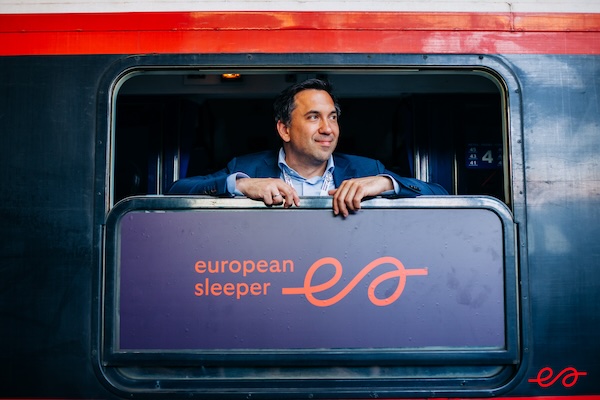A leading night train operator has unveiled plans for a sleeper service connecting the UK to the Alps.
‘Slow travel’ is gaining traction, offering an eco-friendly alternative to flying for ski enthusiasts.
Introducing the ‘Good Night Train’
Plans have been announced by European Sleeper, a Belgian-Dutch enterprise, to introduce an overnight train service known as the ‘Good Night Train.’ This service aims to connect Brussels to Venice, travelling through key locations such as Innsbruck. This particular route is designed to attract ski enthusiasts from the United Kingdom using the Eurostar and a dedicated coach service, creating a seamless travel experience.
Scheduled to run outbound from February to Easter 2025, the train will provide a capacity for 750 passengers. European Sleeper aims to offer competitive pricing compared to traditional airfares, aligning with the growing appeal of ‘slow travel’ among tourists who seek smarter, more sustainable travel alternatives.
Route and Schedule Details
The proposed service is set to depart Brussels on Wednesdays, allowing skiers ample time on the slopes with returns from Venice on Sundays. This schedule is crafted to maximise the skiing weekend experience, providing sufficient time for both travel and leisure.
The travel time for this journey is approximately 15 hours to Innsbruck and extends to about 20 hours to Venice. European Sleeper’s co-founder, Elmer van Buuren, mentioned that although the ticket prices are not yet finalised, they promise to be attractive compared to peak season flights.
Future Expansion Plans
European Sleeper, having commenced its night train operations between Brussels and Berlin in May 2023, is now extending its reach to Dresden and Prague. There’s a strategic focus to further expand their network to incorporate destinations in the south of France and Barcelona by 2026, potentially offering single transfers from London.
The UK market is deemed vital for European Sleeper’s business strategy by van Buuren, citing its significant share among European source markets. Plans are also being considered for sleeper connections directly from London, tapping into the desire for more sustainable travel options.
Challenges and Considerations
Operating this international service comes with specific challenges, notably the capacity constraints at London’s St Pancras station, where there’s limited room for security and passport control. To mitigate this, trains would ideally depart from Stratford.
Another hurdle includes ensuring UK Border Force’s involvement for conducting passport checks in Continental stations, thereby aiming to level the playing field between rail and air travel sectors. This reflects the complex coordination required to optimise operational efficiency across countries.
The Shift Towards Sustainable Travel
A compelling aspect of the ‘Good Night Train’ initiative is its alignment with post-pandemic travel trends prioritising sustainability. The emerging concept of ‘slow travel’ allows passengers to enjoy their journey, placing an emphasis on environmental impact rather than speed.
Elmer van Buuren emphasises the unique value proposition of their service, appealing to conscious travellers seeking to decrease their carbon footprints while experiencing quality travel.
Market Potential and Customer Interest
European Sleeper is optimistic about the reception of its new service. The UK market shows significant promise due to a growing preference for sustainable travel practices.
The concept of overnight sleeper trains rekindles an old-world charm that resonates with modern travel enthusiasts. This nostalgic appeal, combined with practical benefits such as avoiding airport queues, makes it an attractive option.
Conclusion of Project Ambitions
The ‘Good Night Train’ project underscores an ambitious step towards reshaping long-distance travel. It potentially sets a precedent for future developments in sustainable tourism by providing alternative travel methods that cater to both environmental and leisure needs.
The sleeper service to the Alps heralds a shift in travel behaviour, highlighting a commitment to sustainable and enjoyable journeys.
This initiative could redefine how travellers perceive long-haul trips, setting a benchmark for the industry.

